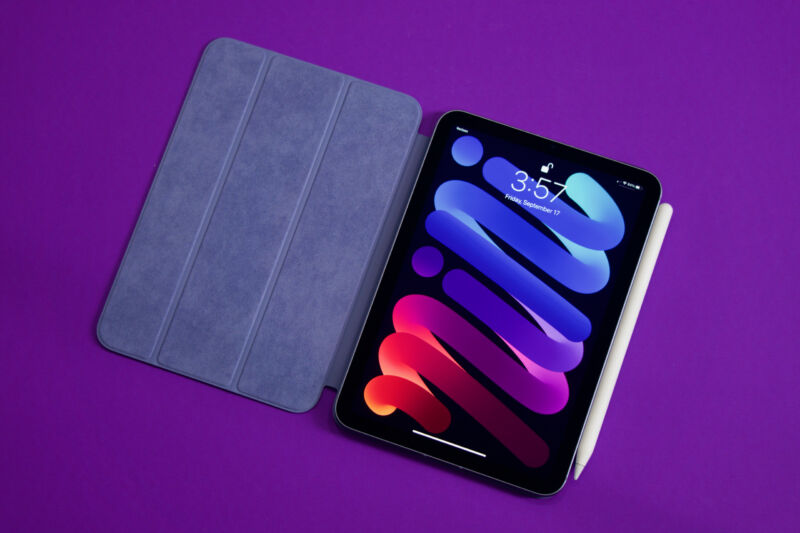big regulations for a big iphone —
iPads must comply with the same DMA regulations as the iPhone.

Andrew Cunningham
Starting in March with the release of iOS 17.4, iPhones in the European Union have been subject to the EU’s Digital Markets Act (DMA), a batch of regulations that (among other things) forced Apple to support alternate app stores, app sideloading, and third-party browser engines in iOS for the first time. Today, EU regulators announced that they are also categorizing Apple’s iPadOS as a “gatekeeper,” meaning that the iPad will soon be subject to the same regulations as the iPhone.
The EU began investigating whether iPadOS would qualify as a gatekeeper in September 2023, the same day it decided that iOS, the Safari browser, and the App Store were all gatekeepers.
“Apple now has six months to ensure full compliance of iPadOS with the DMA obligations,” reads the EU’s blog post about the change.
Apple technically split the iPad’s operating system from the iPhone’s in 2019 when it began calling its tablet operating system “iPadOS” instead of iOS. But practically speaking, little separates the two operating systems under the hood. Both iOS and iPadOS share the same software build numbers, they’re updated in lockstep (with rare exceptions), and most importantly for DMA compliance purposes, they pull software from the same locked-down App Store with the same Apple-imposed restrictions in place.
Apps distributed through alternate app stores or third-party websites will have to abide by many of Apple’s rules and will still generally be limited to using Apple’s public APIs. However, the ability to use alternate app stores and browser engines on the iPad’s large screen (and the desktop-class M-series chips) could make the tablets better laptop replacements by allowing them to do more of the things that Mac users can do on their systems.
Though Apple has made multiple changes to iOS in the EU to comply with the DMA, EU regulators are already investigating Apple (as well as Google and Meta) for “non-compliance.” Depending on the results of that investigation, the EU may require Apple to make more changes to the way it allows third-party apps to be installed in iOS and to the way that third-party developers are allowed to advertise non-Apple app store and payment options. Any changes that Apple makes to iOS to comply with the investigation’s findings will presumably trickle down to the iPad as well.
Of course, none of this directly affects US-based iPhone or iPad users, whose devices remain restricted to Apple’s app stores and the WebKit browsing engine. That said, we have seen some recent App Store rule changes that have arguably trickled down from Apple’s attempts to comply with the DMA, most notably policy changes that have allowed (some, not all) retro game console emulators into the App Store for the first time.